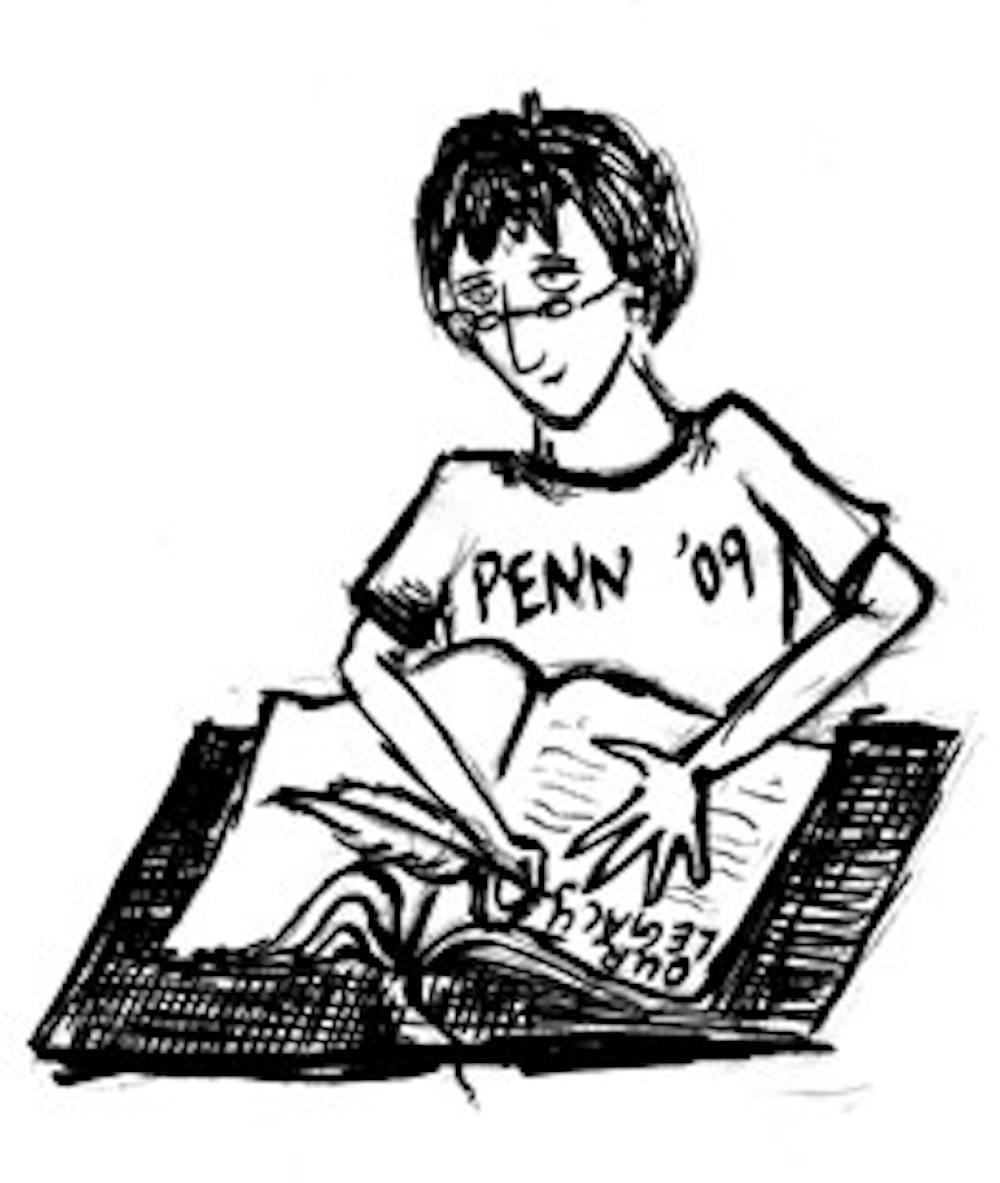
We look forward to several traditions when February rolls around: the symmetrical nature of the month's four weeks*, the repeated airing of Groundhog Day, the repeated airing of Groundhog Day and for seniors, the start of Feb Club, a chance to socialize with the people whose phone numbers you have from NSO, but whom you never got around to calling (Sylvia, we sat on the bus together to the Philadelphia Museum of Art. Hope you're doing well).
I'm looking forward to the month's events, but senior class president Brett Perlmutter's e-mail extolling the days of econ screams has cued the nostalgia I had hoped to postpone. While I won't start reminiscing in these pages (yet), I will admit that the start of Feb club has gotten me thinking about the marks we hope to leave on the University.
The notion of legacy isn't an uncommon one, and we're in good company when we think about a person who recently cemented his own. On Jan. 28, prolific author, essayist and art critic John Updike died from lung cancer. In an eerie yet touching tribute, The New York Times printed a poem from his forthcoming work:
It came to me the other day: Were I to die, no one would say, "Oh, what a shame! So young, so full Of promise - depths unplumbable!"
Instead, a shrug and tearless eyes Will greet my overdue demise; The wide response will be, I know, "I thought he died a while ago."
For life's a shabby subterfuge, And death is real, and dark, and huge. The shock of it will register Nowhere but where it will occur.
Putting aside for the moment Updike's unnerving clairvoyance, there's something within the piece that speaks to the trepidation many seniors are currently experiencing. At the end of the day, after the Penn Environmental Group, and Masala, and United Minorities Council, and newspaper meetings are done, will it be enough? Will we feel like we've contributed? Will our promise be fulfilled?
In Updike's case, there is no doubt that his poem was needlessly paranoid. Having published 60 books and hundreds of essays, Updike might be gratified to know that readers all over the world are mourning his death. His portrayals of small-town American life, replete with elegant prose that glorified the banal, have solidified his reputation far into the future.
But not all public figures have been so lucky. Coldplay's musings about sweeping streets we used to own isn't so outlandish - we've witnessed the fall of corporate giants and watched government officials shred their legacies with one ill-placed torture memo. The crowd's hissing as Bush departed from Washington, while inappropriate and rude, is one more indication of a reign turned sour. I know Bush will have his presidential library to distract him, but part of me wonders whether he lies awake at night, tossing, turning, envisioning his ultimate portrayal in history books.
In light of these less-than-stellar legacies, I can't help pondering our own.
The ancient Egyptians didn't write down much of their history, which made it easier to bury memories of embarrassing military losses. Similarly, the Obelisk of Theodosius in Istanbul was actually erected in a pharaoh's honor in Egypt, but later covered with Latin inscriptions (like Photoshop, only amateurish).
But in an age in which legacies are crafted and committed to digital memory almost instantaneously, erasure becomes impossible. This is comforting and terrifying at the same time.
Feb Club is held in February because it's an excuse to get people out in the cold weather, enjoying their senior classmates for the last time, Perlmutter told me. April - the other complete month without a break is too late because people are looking toward graduation.
So perhaps the notion of legacy is inappropriate now. We do, after all, have 28 days of institutional hedonism ahead of us. Instead of wondering whether we've accomplished everything we've set out to do, we can contemplate how many seniors can fit into the closet that is Naked Chocolate. If April is consistent in its cruelty, we will have 30 days to lament the end of our college careers.
Until then, I can berate the groundhog that's forced another six weeks of winter, and I look forward to mining unplumbable depths.
*I don't believe in leap years
Julie Steinberg is a College senior from Boca Raton, Fla. That's What She Said appears on alternating Tuesdays. Her email address is steinberg@dailypennsylvanian.com.
The Daily Pennsylvanian is an independent, student-run newspaper. Please consider making a donation to support the coverage that shapes the University. Your generosity ensures a future of strong journalism at Penn.
DonatePlease note All comments are eligible for publication in The Daily Pennsylvanian.







